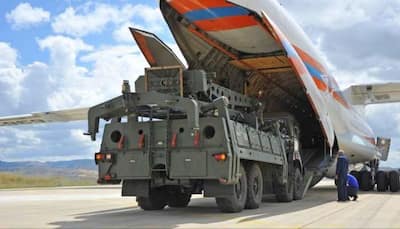Taking a giant leap towards self-sufficiency in defense technology, India is designing a locally developed long-range surface-to-air missile (SAM) system similar to Russia’s S-400 under Project Kusha, an all-India collaborative project by the Defence Research and Development Organisation (DRDO) and Bharat Electronics Limited (BEL).
The native system is being developed to resemble the performance of the Russian-produced S-400 Triumph, which had lately come into action during Operation Sindoor, when Indian military forces were able to intercept more than 300 Pakistani drones and missile attacks following terror activities from the other side of the border.
As per The Economic Times, the indigenous system’s prototype is likely to be completed within the next 12 to 18 months. The user trials could then be stretched over 12 to 36 months to test operational effectiveness.
BEL, one of the main defence PSUs that is engaged in air defence systems such as Akashteer, is also developing essential subsystems of Project Kusha, such as advanced control systems and radar technologies. BEL Chairman and Managing Director Manoj Jain replied on the March quarterly earnings call that the company is waiting to hear regarding the choice of a system integrator and would like to be among them if two are chosen by the government.
NDTV Profit said Project Kusha had the potential to yield a Rs 40,000 crore defence order, making it a flagship project of India’s missile defence capabilities.
India had signed a USD 5.4 billion deal with Russia to buy five S-400 systems in 2018. So far, three have arrived, while the fourth is due next year and the fifth will come in 2026. Meanwhile, National Security Advisor Ajit Doval will travel to Moscow from May 27 to 29 to attend the 13th International Meeting of High Representatives for Security Issues. He will be required to advocate for the early delivery of the rest of the S-400 systems.
Besides Project Kusha, BEL is also undertaking the QRSAM system’s development. Negotiations are on to close its contract, and a specialized team has been constituted to complete the project, which is likely to create orders worth Rs 30,000 crore.
“We are the production agency for QRSAM, so the order will come to BEL,” Jain stated.
During Operation Sindoor, India struck back at the April 22 terror strike in Jammu and Kashmir’s Pahalgam—which killed 26 people—by carrying out precision attacks on nine terror camps in Pakistan and Pakistan-occupied Kashmir.
The Indian Air Force had fielded the S-400 system along with local missile defences such as Akash, Samar, Barak-8, and anti-drone capabilities through the Integrated Air Command and Control System (IACCS). The S-400 system’s superior radar and engagement capabilities made it capable of countering aerial threats up to 400 km away, reiterating its strategic value.
As India keeps ramping up its defence readiness in the face of regional security threats, Project Kusha is a key step towards indigenisation and technology independence in air defence. The success of this indigenous S-400 substitute has the potential to radically change India’s strategic independence in missile defence capabilities.
Stay informed on all the , real-time updates, and follow all the important headlines in and on Zee News.








